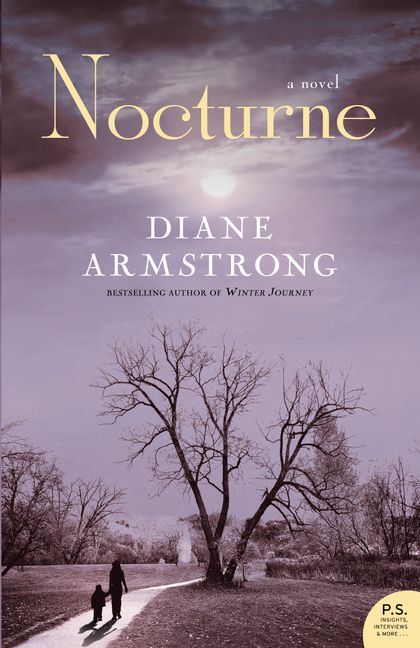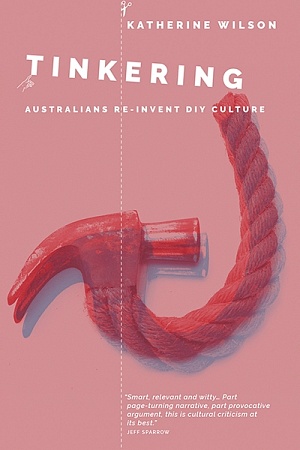Nocturne
HarperCollins, $32.99 pb, 557 pp
Up for grabs
Diane Armstrong is a prolific, award-winning journalist whose book-length publications began with a memoir of family history, Mosaic (1998), and The Voyage of their Life (2001), set on the SS Derna, which brought Polish-born Armstrong, her parents and 500 refugees to Australia in 1948. In 2004 Armstrong turned to fiction with Winter Journey, about a Polish-Australian forensic dentist. Now we have Nocturne, which, although it features one or two Australian characters, takes place in Warsaw, England and Germany during World War II. It is a gallant and gut-wrenching story but a difficult book to review, because it suffers from inadequate editing.
Until the spurious Polish plumber was invoked to scare the daylights out of dog-in-the-manger Europeans, Poland was recovering well from her war wounds and beginning to receive the sympathy and admiration her long and tragic history deserves. The partitions of the eighteenth and nineteenth centuries, plus a further territorial rearrangement favouring the Soviet Union in 1943, cast this large country as a geographical and political prize always up for West and East European grabs. A passing acquaintance with her people, her history and her culture seems to point to a Slavic soul combined with Catholic or Jewish spirituality, and a wonderfully successful aspiration to romantic elegance. Polish girls dress with Parisian chic, and elderly gentlemen still kiss women’s hands.
If the above sounds like a load of clichés, this book only goes part of the way towards undoing them. The prelude takes place in the Warsaw Ghetto at the start of the war, when the central figure, Elżunia Orłowska, is a fourteen-year-old living happily with her Catholic family in their comfortable apartment. One day a prophecy of the horrors to come freezes Elżunia as the horse-drawn cab in which she and her parents are returning from a concert passes by the Jewish quarter. ‘Suddenly everything stopped moving. The street became as still and silent as a tableau ... In the ghostly stillness that descended over the street, she had a vision of an enclosure that surrounded these houses, sucked out the air and entombed all the people.’ When the Nazis arrive, Elżunia, her mother (born Jewish) and her older brother are ordered to move into the Ghetto. The description of these beleaguered, starving years is predictably harrowing and behoves us all to read it. Nevertheless, Elżunia manages to train as a nurse, house an orphan and play an heroic leading role in the Ghetto’s resistance group.
Parallel to her story is that of Adam Czartoryski, before the war a would-be diplomat who becomes, first, a courier for the external Polish Resistance and then, in England, a pilot with an RAF squadron composed largely of Polish flyers. Before this last, the paths of Elżunia and Adam crossed briefly; she gave him the cherished silver cigarette case that had belonged to her father, and thereafter designated him her dream man. As a complex, terrible saga covering six long years works its tortuous way towards D-Day, Elżunia and Adam slowly progress towards a postwar reunion in which the cigarette case plays a portentous role. You cannot believe that Armstrong will succumb to a fairy-tale ending, but unfortunately she does – though not, at least, to the most obvious scenario.
The best and most gripping passages in this book occur whenever the shocking realism of history wrenches the story from the author’s genteel hands. The accounts of the two uprisings, the first organised by the Jews in the Ghetto, the second by the Resistance fighters in wider Warsaw, are dramatic and heart-breaking. After the Ghetto uprising is brutally crushed, an unforgettable episode follows when those who have not been killed by the Nazis, many of them youngsters, several of them wounded, make their stomach-churning escape through the putrid sludge and foul air of the sewers. A more upbeat but equally tense chapter describes the airdrop in which Adam and his Lancaster crew shower the Warsaw insurgents with desperately needed supplies. The Luftwaffe is shelling the British planes, Warsaw is burning and almost invisible in the smoke, but their target emerges far below as a large red cross made by people lying on the ground holding hurricane lamps.
These events make superb reading, not only because of their subject matter but because the narrative tells it how it is. At other times, however, Armstrong appears too carried away by the pathos or heroism of her deeply felt story to apply a critical eye to it. Practical questions go unanswered (how can the Ghetto hospital dress its nurses in neat peppermint-striped uniforms when everyone else is in rags?), while stilted or arch dialogue studded with clunky jokes clogs the characters. Adam, who is supposed to speak good English and is capable of sentences such as ‘Is this what you had in mind when you suggested a romantic stroll in the dark?’, describes himself as ‘the strange man outside’ (odd man out), before coming out with, ‘We go for dinner, yes?’ There are also too many bowls of soup never less than steaming, and smiles that are always mischievous. The predicability of the cigarette case makes one groan, as do the laboured attempts to introduce slang: did Australian flyers ever address their sisters as ‘Sis’, or say, ‘That glamourpuss in the slinky red dress is giving me the once-over ...’?
The main disappointment, however, in this earnest, laborious but worthy narrative, is the plethora of unnecessary explanations tacked on to everything. ‘Adam’s jaw ground back and forth but he said nothing. He needed all his strength to focus on flying the plane.’ The first sentence does it; the second is otiose.
Dedicated to the author’s ‘darling grand-daughters’, was this story written with one eye on them rather than on the adult audience?












Leave a comment
If you are an ABR subscriber, you will need to sign in to post a comment.
If you have forgotten your sign in details, or if you receive an error message when trying to submit your comment, please email your comment (and the name of the article to which it relates) to ABR Comments. We will review your comment and, subject to approval, we will post it under your name.
Please note that all comments must be approved by ABR and comply with our Terms & Conditions.